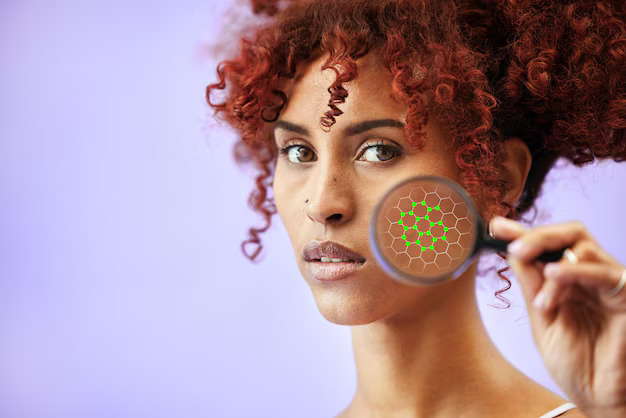
Skin cancer genetic
Skin cancer can be genetic. Many tumours are known to have familial and/or inherited components. Basal cell carcinoma and squamous cell carcinoma are two of the most common cancers often caused by sun exposure, although several hereditary syndromes and genes are also associated with an increased risk of developing cancers.
Melanoma, one of the serious cancer types, is a less common skin cancer, but 5% to 10% of all melanomas arise in multiple-case families and can be inherited.
While most skin cancers are linked to sun exposure and environmental factors, some types, particularly melanoma, have known inherited genes such as CDKN2A, and other hereditary conditions can also increase risk. Genetic factors also include inherited traits like fair skin, red hair, and freckles, which are associated with increased risk due to specific gene variations like MC1R.
Genes and Other Factors Behind Skin Cancer
A number of factors are responsible for leading to skin cancer. UV radiation from the sun and tanning beds can damage the skin cells’ DNA.
Genetic factors also play a significant role, with specific inherited genetic variations increasing susceptibility. Other contributing factors include having fair skin that burns easily, red hair, light eyes, a family history of skin cancer, a history of blistering sunburns, particularly in childhood, and a weakened immune system. Here is the list of factors causing skin cancer:
1. Genetic
Individuals with CDKN2A gene mutations are at an increased risk. Genetic mutations can also influence physical traits, like fair skin or moles, which further increase susceptibility to UV damage, a major environmental risk factor for skin cancer. Additionally, inherited genetic defects can impair a cell’s ability to repair DNA damage, allowing mutations to accumulate and potentially lead to uncontrolled cell growth and cancer.
Individuals with genetic predispositions, such as fair skin, light hair, and a tendency to burn rather than tan, are more vulnerable to UV-induced cell damage. Repeated sun exposure can damage cells in susceptible individuals, making existing moles more likely to become malignant.
2. Environmental and Lifestyle
The primary cause of skin cancer is excessive exposure to UV light from the sun and tanning beds. It can lead to damaged DNA in skin cells. Experiencing one or more blistering sunburns, especially during childhood, is a significant risk factor for developing skin cancer later in life.
Geographical location can also lead to skin cancer. It influences skin cancer risk primarily through factors like latitude, proximity to the equator, and ozone layer thickness, which affect ultraviolet (UV) radiation exposure. Other geographical factors include altitude, climate, and outdoor lifestyle prevalence, all of which can alter UV exposure levels and influence the incidence of skin cancer in different regions and populations.
3. Other
Individuals with fair skin, red or blond hair, light-colored eyes, and freckles are at a higher risk. A personal history of skin cancer or a family history of the disease increases your likelihood of developing it. A compromised immune system, due to medicine or disease, can lower the body’s ability to fight cancerous cells.
Disruptions to the body’s internal clock, such as from long-term night shift work, can negatively impact health and potentially increase cancer risk. Ensure you are wearing a high SPF sunscreen while stepping out. If possible, ignore stepping out in the sun at peak hours.
Protect yourself from skin cancer with the help of further information.
Reduce Risk of Skin Cancer Development
When it comes to skin cancer prevention, the priority must be sun protection, reduced use of tanning beds and regular skin checkups. Stay in the shade, especially during the most intense sun hours.
Avoid tanning beds; these emit harmful UV radiation and significantly increase your risk of developing skin cancer.
Before stepping out of the house, you must check the UV index numbers. Higher UV Index numbers mean greater potential for skin and eye damage. Cover your eyes with sunglasses and wear sunscreen. We advise carrying sunscreen with you so that you can reapply.
Reapplication every two hours helps get skin protected all day long. Also, choose clothing and gear according to the sun exposure.
Visiting regularly for skin checks can ensure that you are doing right, and the experts can detect the issue at an early stage before complications become severe.
Final Thoughts
Genetics play a significant role in skin cancer. Your early diagnosis can help start treatment early, making the treatment plan effective. “Skin Tag Removal” must be your search. Get the expert diagnosis and treatment. Take care of your sunscreen application and wear protective gear. Remember, although UV radiation is a major factor in skin cancer, other factors can also lead to it, so be careful and smart. more






